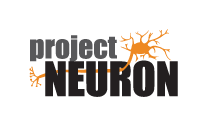Using games to support students in the practice of "Developing and Using Models."
Explore role-playing games that engage students in using models by asking questions, making predictions, and collecting and analyzing data.
Summary:
Scientific models can represent a system, be used to develop questions and explanations, generate data or make predictions, and communicate ideas to others. Through this workshop, participants explore how role-playing educational games can be engaging classroom activities that address the same learning goals as a more traditional model.
First, participants will split into small groups to briefly discuss their current techniques for using models and/or games in the classroom. Then, attendees will split off into groups to explore an educational game, The Guppy Game, in which participants play as wild and fancy, male and female guppies. The game models survival and reproduction of guppies in habitats to show how natural and sexual selection affects guppy traits. Participants collect data that the group discusses. We also briefly introduce other role-playing board games that model various systems and concepts in biology: honey bee roles within a hive, biomagnification within an aquatic food chain, and how environmental factors affect gene expression.
Next, we provide a description of the NGSS practice “Developing and Using Models” for the high school level and conclude the session with a discussion drawing connections between the games and the NGSS practice and practical connections to the participants’ classrooms.
Hillary Lauren,* Robert Wallon, and Barbara Hug. (2015). Workshop at the National Science Teachers Association (NSTA) National Conference on Science Education, Chicago, IL.
*Conference presenter
Note: Lesson 6 of the "Do you see what I see?" Unit will be updated to include the Guppy Chart spreadsheet soon.

